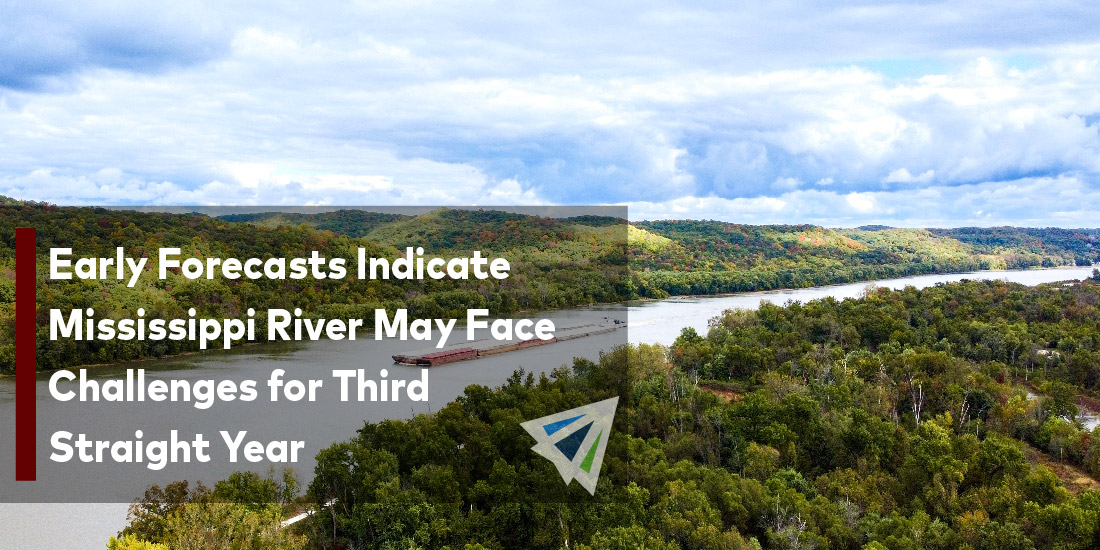The future of barge transportation on the Mississippi River is beset not just by weather patterns and competition from other types of transportation, but also by environmental concerns. The effects of climate change, including as increasingly severe and frequent droughts, pose a threat to the current challenges of keeping navigable water levels stable. This emphasizes how urgently comprehensive methods to address resilience and environmental sustainability in river transportation are needed.
In 2022 and 2023, freight movement on the Mississippi River was hindered by severe droughts, plummeting the waterway’s levels. These weather-related setbacks mostly impacted Midwest agricultural exports during U.S. harvest season as river barges are a preferred mode of transporting these commodities to seaports.
Efforts to Increase Efficiency
Aside from investing in green technology and alternative fuels, efforts to lessen the environmental impact of barge transportation might also involve cutting emissions and safeguarding delicate riverine habitats. Through the implementation of sustainable practices and a focus on environmental stewardship, the barge transportation business may effectively reduce its carbon footprint and improve its long-term sustainability in the face of climate change.
Furthermore, the prognosis for barge transportation is further complicated by changing global trade trends and geopolitical concerns. The demand for goods carried along the Mississippi River may be impacted by the current trade disputes and geopolitical crises, which might disrupt supply chains and change trade routes. Stakeholders in the transportation sector will need to be adaptable and flexible in order to navigate these risks.
There are causes for hope despite these obstacles. Improvements in navigation systems and vessel designs, among other technological developments, have the potential to boost the resilience and efficiency of barge transportation. Furthermore, cooperation between governmental organizations, business partners, and environmental organizations can result in creative solutions that tackle issues related to the economy and environment.
Moreover, to keep barge transportation competitive in the global market, investments in infrastructure and labor development are essential. The sector may increase operating efficiency and set itself up for future development by updating outdated infrastructure, growing port facilities, and funding worker training initiatives.
In Summary
It is imperative that stakeholders give sustainability and resilience in river transportation a priority going forward. This entails preparing for long-term climatic consequences and geopolitical developments in addition to tackling current issues. The barge transportation business can effectively negotiate the intricacies of the contemporary shipping scene and guarantee the Mississippi River’s future vitality as a crucial commercial artery for an extended period of time by adopting innovative practices, fostering teamwork, and making strategic investments.
Should you have any questions regarding this, please reach out to our team today.
Additionally, we have our weekly market updates that can provide you with relevant freight news, updates, developments across the industry, and more.
